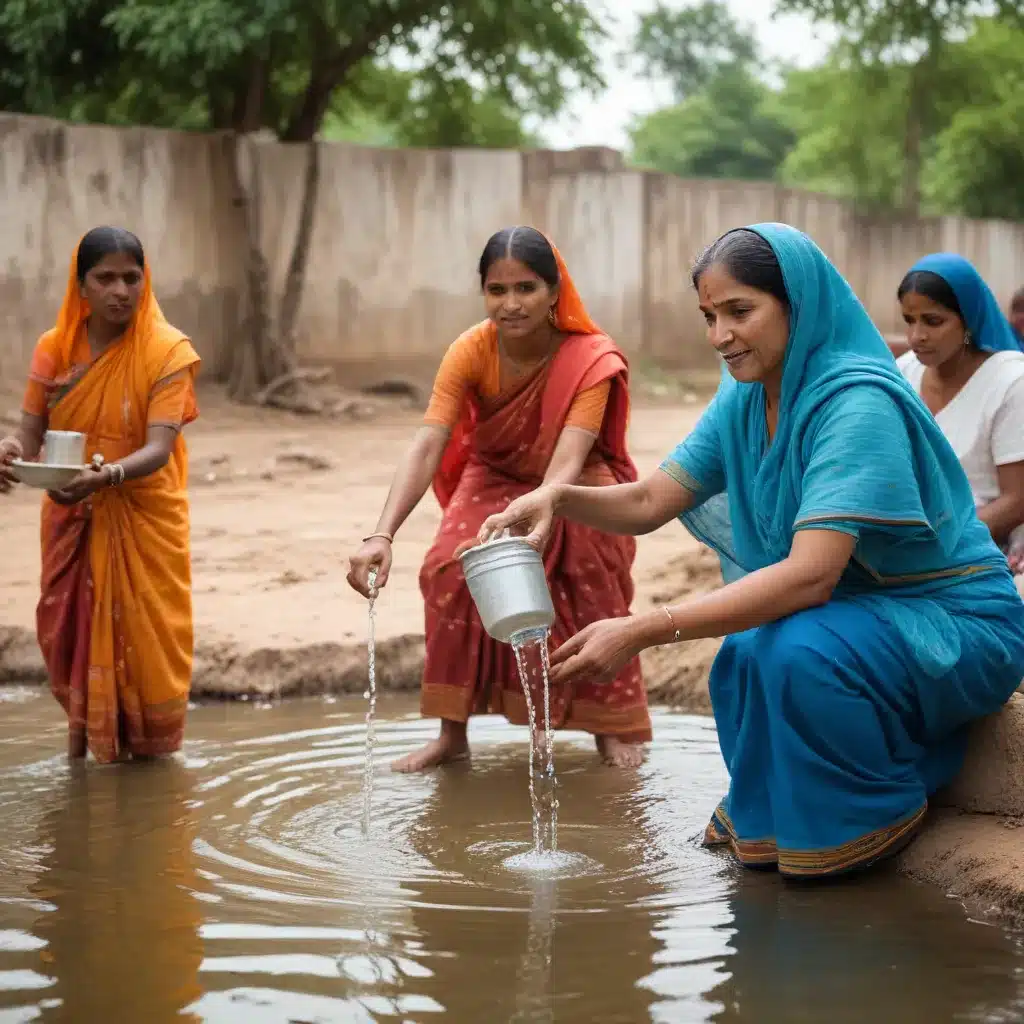
Empowering Local Communities for Sustainable Water Management
Access to clean and reliable water services is a fundamental human right, yet far too many communities around the world continue to struggle with water scarcity, contamination, and inequitable distribution. In Hyderabad, India, however, a remarkable community-driven approach to water governance is proving that when citizens are empowered to participate in decision-making and hold authorities accountable, transformative change is possible.
Addressing the Water Crisis through Collaborative Action
Hyderabad, a rapidly growing metropolis, has long grappled with complex water challenges. Aging infrastructure, unplanned urbanization, and the impacts of climate change have all taken a toll, leaving many residents without access to safe drinking water and adequate sanitation. Recognizing the urgent need for action, local civil society organizations (CSOs) and community groups have spearheaded a grassroots movement to reshape water governance in the city.
One such initiative is the Hyderabad Water Community (HWC), a coalition of over 50 organizations dedicated to ensuring equitable and sustainable water management. By fostering collaboration between citizens, government agencies, and technical experts, the HWC has pioneered a model of community-based water governance that has yielded remarkable results.
“We realized that top-down, technocratic approaches to water management were not working for our communities,” explains Ravi Prakash, a founding member of the HWC. “To truly address the crisis, we needed to empower local residents to take an active role in decision-making and hold authorities accountable.”
Empowering Citizens through Participatory Processes
At the heart of the HWC’s approach is a commitment to inclusive, participatory processes that give community members a direct voice in water-related decisions. This begins with comprehensive community engagement, where HWC members work closely with neighborhood groups to understand their unique water challenges and priorities.
“We don’t just come in with pre-determined solutions,” says Anjali Sharma, the HWC’s community outreach coordinator. “Instead, we facilitate open dialogues where residents can share their experiences, concerns, and ideas for improvement. This helps us develop tailored, community-driven strategies that reflect local needs.”
Through these discussions, the HWC has identified key focus areas, such as improving water quality, enhancing access to sanitation services, and addressing the disproportionate impacts on marginalized communities. Armed with this grassroots intelligence, the coalition then collaborates with local authorities to co-create water management plans and policies.
“By working in partnership with the government, we’re able to leverage their technical expertise and resources, while also ensuring that community voices are heard and integrated into the decision-making process,” Ravi Prakash explains.
Fostering Transparency and Accountability
Equally vital to the HWC’s approach is a commitment to transparency and accountability. The coalition has established robust monitoring and evaluation systems, empowering residents to track the progress of water projects and hold authorities accountable for their commitments.
“One of our key tools is the Community Water Scorecard, which allows residents to rate the performance of local water services based on factors like reliability, quality, and responsiveness to community needs,” says Anjali Sharma. “This data is then shared with the government, providing tangible evidence to support our advocacy efforts.”
The HWC has also pioneered the use of digital technologies to enhance transparency and civic engagement. Through a user-friendly mobile app, community members can report water-related issues, access real-time water quality data, and monitor the implementation of local water projects.
“By empowering residents with information and a platform to voice their concerns, we’re creating a culture of accountability that is transforming the way water is managed in Hyderabad,” Ravi Prakash explains.
Tangible Impacts and Scaling Up for Greater Change
The HWC’s community-based approach has already delivered tangible impacts for Hyderabad’s residents. Through collaborative partnerships with the local government, the coalition has secured investments in water infrastructure upgrades, expanded access to sanitation services, and improved water quality monitoring in underserved neighborhoods.
Perhaps most importantly, the HWC has succeeded in shifting the paradigm of water governance, demonstrating the power of citizen-led initiatives to drive sustainable change. The coalition’s model has gained national recognition, with the Indian government highlighting it as a best practice in community-based water management.
“Our ultimate goal is to inspire and support the replication of this approach in other cities across India and beyond,” says Anjali Sharma. “By empowering local communities to take an active role in water governance, we believe we can create a more equitable, resilient, and sustainable water future for all.”
Conclusion: Lessons for Effective Community-Based Water Governance
The Hyderabad Water Community’s journey offers several key lessons for effective community-based water governance:
- Prioritize Inclusive Participation: Engage residents, especially from marginalized communities, in all stages of water management decision-making to ensure their needs and priorities are reflected.
- Foster Collaboration between Citizens and Authorities: Establish constructive partnerships between community groups and local government agencies to leverage their respective strengths and resources.
- Embrace Transparency and Accountability: Empower residents with the tools and information to monitor water service performance and hold authorities accountable.
- Leverage Digital Technologies: Utilize digital platforms and tools to enhance civic engagement, data collection, and real-time feedback mechanisms.
- Amplify Grassroots Successes: Showcase community-led water governance models to inspire replication and drive systemic change at larger scales.
By embracing these principles, communities around the world can follow Hyderabad’s lead and reclaim their rightful role as active partners in shaping the water systems that sustain their livelihoods and wellbeing. Through collective action and collaboration, the path towards equitable, sustainable, and resilient water management can be paved.
To learn more about the Hyderabad Water Community and other community-based water initiatives, visit https://jointactionforwater.org/.

